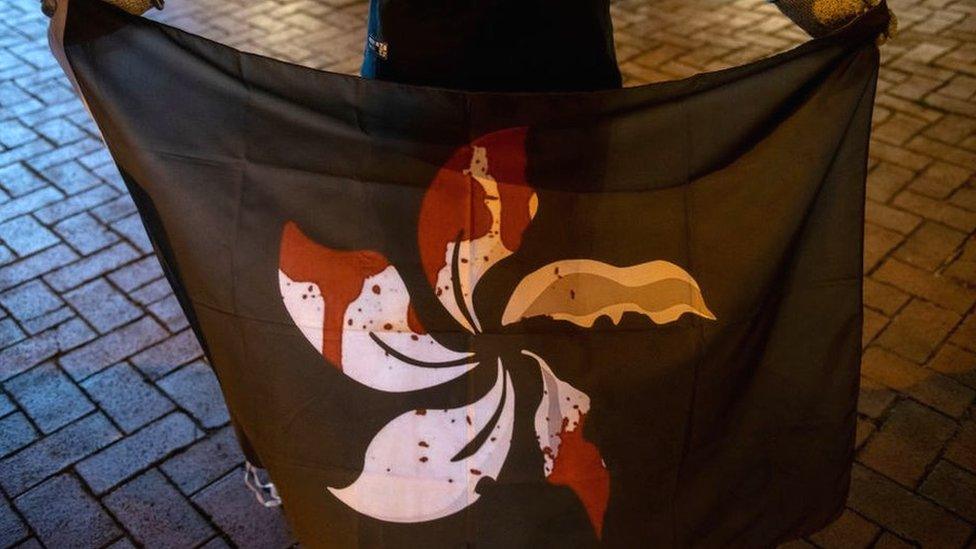Hong Kong: Top UK judges resign from highest court
- Published
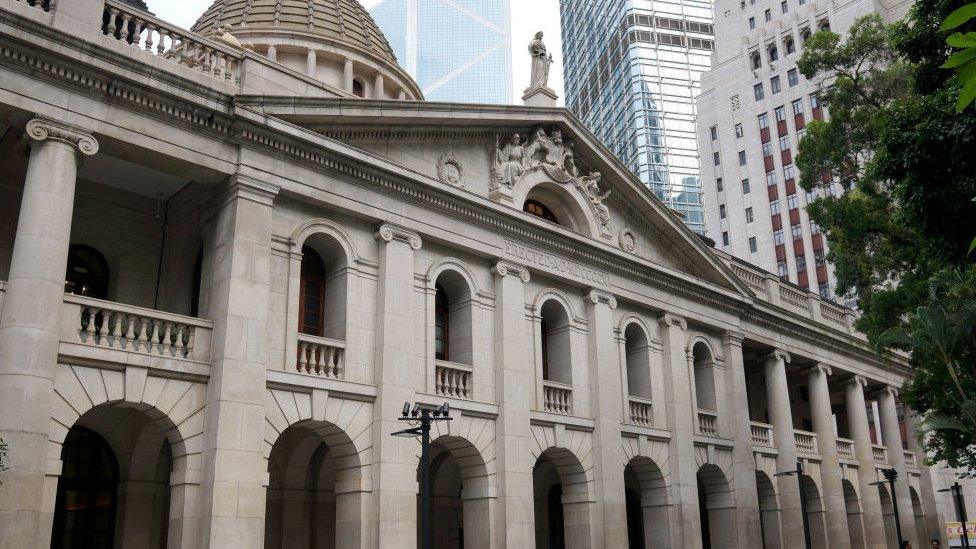
Hong Kong's Court of Final Appeal has ruled on many of the territory's highest-profile cases
The UK has announced that two of its Supreme Court judges will no longer be sitting on Hong Kong's top court.
The judges said the threat to civil liberties had made their role on Hong Kong's Court of Final Appeal untenable.
Hong Kong's Chief Executive Carrie Lam has responded with "regret and disappointment" to the resignations.
But the UK government supports the decision, and says the situation in the territory has now reached "a tipping point".
In 2020 China introduced a national security law that curtailed freedom of speech and made it easier to punish protesters in Hong Kong.
UK Supreme Court President Lord Robert Reed said he and Lord Patrick Hodge were resigning from the court over the threat to civil freedoms posed by the new law.
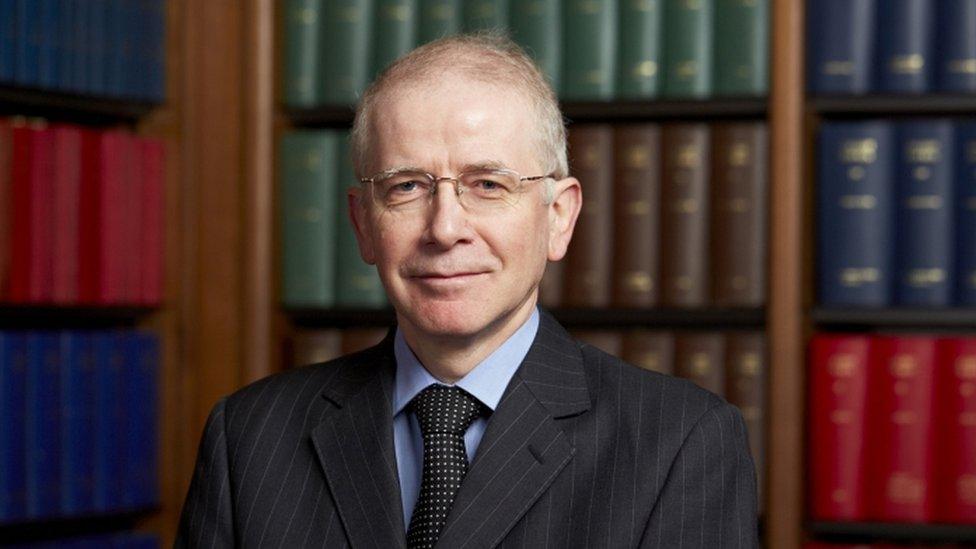
UK Supreme Court President Lord Robert Reed said China's national security law made his role on the Hong Kong court impossible
"The judges of the Supreme Court cannot continue to sit in Hong Kong without appearing to endorse an administration which has departed from values of political freedom, and freedom of expression," Lord Reed said.
The Hong Kong Court of Final Appeal hears many of the territory's highest profile cases, often ruling on key questions over civil and political liberties.
Senior British judges have sat on the court since 1997 as part of an agreement when Hong Kong was handed over to China by the UK.
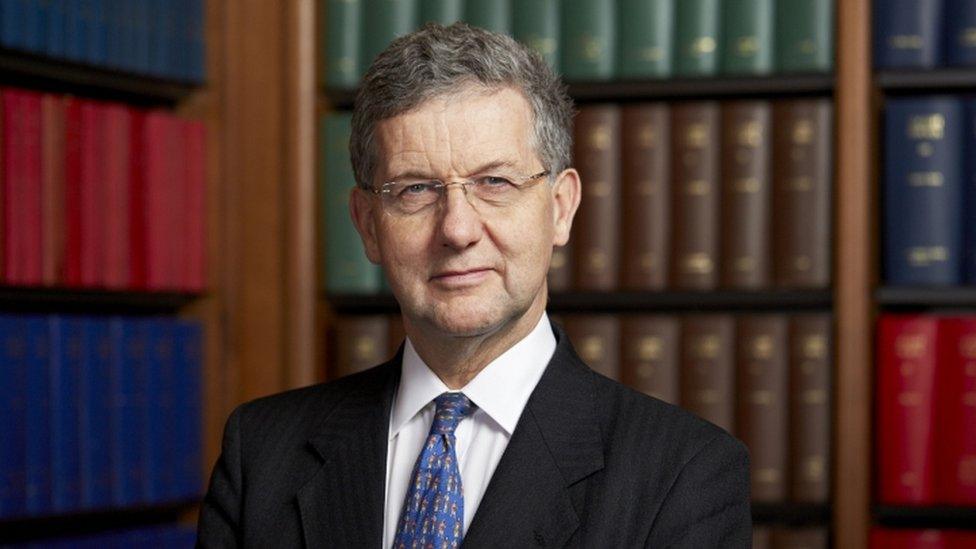
Lord Patrick Hodge is one of the two UK Supreme Court judges to resign with immediate effect
UK Foreign Secretary Liz Truss endorsed the decision, saying the participation of top British judges in Hong Kong's legal system risked legitimising oppression.
"We have seen a systematic erosion of liberty and democracy in Hong Kong," Ms Truss said.
"Since the National Security Law was imposed, authorities have cracked down on free speech, the free press and free association."
The UK - which ruled over Hong Kong for 150 years - claims the 2020 law breaches the agreement under which Britain handed over the territory to China in 1997.
China says the law is needed to bring stability to Hong Kong after mass pro-democracy protests in 2019, and on Wednesday a Chinese government spokesperson said it "strongly deplored" the judges' decision to quit the court.
The spokesperson said that the territory is governed according to the rule of law and criticised the UK for its "attempts to maliciously vilify China's policies for Hong Kong".
Hong Kong's Chief Executive Carrie Lam said the decision meant the UK government was effectively ending an agreement that has been in place since 1997, and pushed back against the criticism of the national security law., external
"We must vehemently refute any unfounded allegations that the judges' resignations have anything to do with the introduction of the Hong Kong national security law or the exercise of freedom of speech and political freedom," Ms Lam said.
A Hong Kong government spokesperson added: "we could find no substantiation or evidence to justify sweeping statements accusing the Hong Kong administration of departing from the above fundamental rights and freedoms".
The role of foreign judges in Hong Kong's courts has been legally guaranteed since the territory was returned to China, intending to maintain the common law tradition established under British rule.
Non-permanent judges from Canada, Australia, and New Zealand also sit on the court, as well other judges with British nationality.
A spokesperson for the UK Supreme Court confirmed to the BBC that the remaining six British judges who have seats on the Hong Kong court will be left to decide independently if they wish to retain their posts.
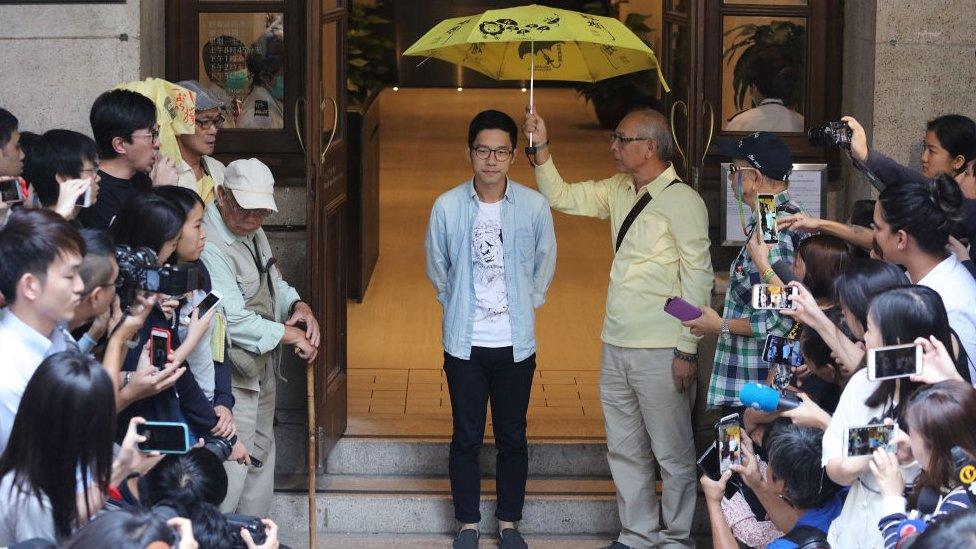
Pro-democracy activist Nathan Law walks out of the Hong Kong Court of Final Appeal in 2018 after being released on bail
Hong Kong pro-democracy activist Nathan Law, who is living in political exile in the UK and has previously had a high-profile case heard by the court, welcomed the decision but said it had come too late.
Mr Law said that any judge sitting on the court must "believe the rule of law is still intact in Hong Kong", and called on the remaining British and overseas judges to resign.
"All judges from democratic countries who still are sitting in Hong Kong's court should resign in order to reiterate the fact that rule of law in Hong Kong is severely damaged under the national security law," he told the BBC.
"The national security law has given the Beijing government a convenient legal weapon to prosecute democratic campaigners and criminalise free speech."
The Chinese foreign ministry describes Mr Law as a "criminal suspect" wanted by police.
You might also be interested in:
Hong Kong's Stand News independent website shuts down after raid
- Published14 March 2022
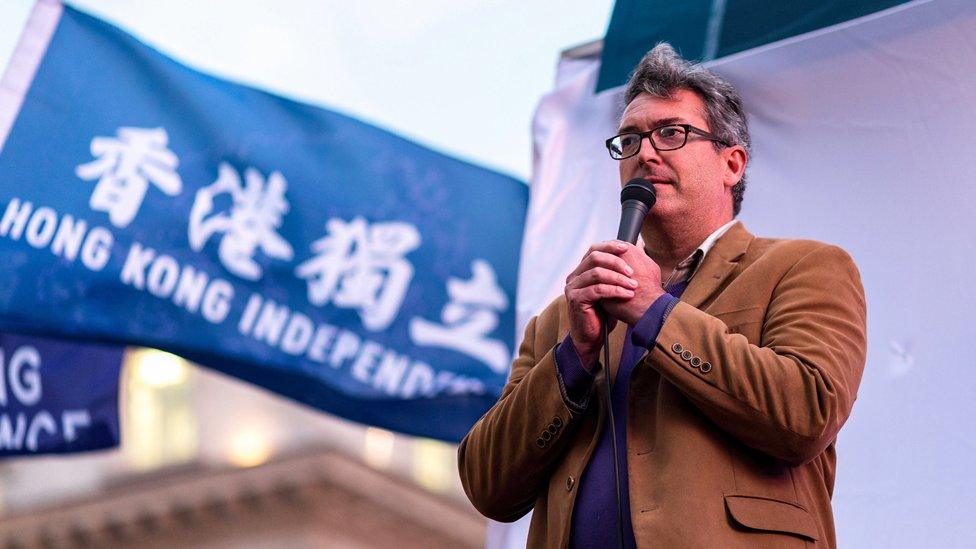
- Published19 March 2024
